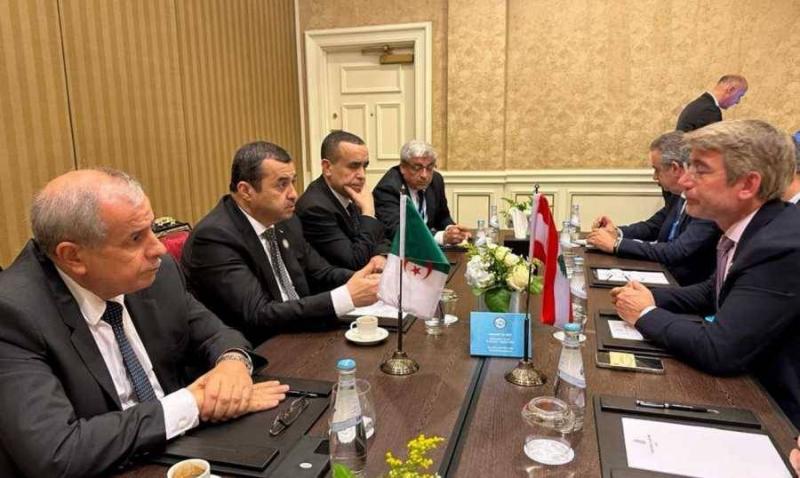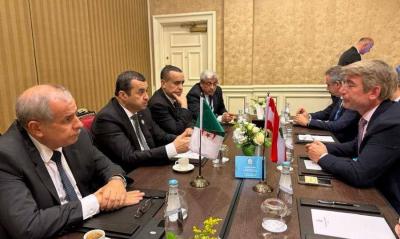Walid Fayyad, the Minister of Energy and Water in the caretaker government, headed Lebanon's official delegation to the 12th Arab Energy Conference held in Doha at the invitation of the Qatari government. He participated along with the delegation members including Kamel Hayek, Chairman and General Manager of Electricité du Liban, Gabi Dabboul, Wissam Al-Zahabi, Wissam Shabait, and Ministerial Advisor Khaled Nakhlah in the conference's launch activities, which was sponsored by Qatar's Emir Sheikh Tamim bin Hamad Al Thani, and presided over by Qatar's Minister of State for Energy Affairs Saad bin Sherida al-Kaabi, along with a large number of Arab energy ministers.
The conference began with Emir Tamim receiving the participating ministers, discussing the objectives of the event in Doha, and wishing success for the activities. After concluding the opening sessions, Fayyad and the Lebanese delegation held a series of ministerial meetings, including a meeting with the Qatari Minister of State for Energy Affairs Saad bin Sherida al-Kaabi to discuss cooperation between Qatar and Lebanon in energy matters, especially exploration activities in Lebanese maritime waters and the coalition involving "Qatar Energy," "TotalEnergies" from France, and "Eni" from Italy in the second licensing round after the coalition submitted bids for blocks 8 and 10, as well as investment in renewable energy in Lebanon.
On another front, Fayyad met with Iraq's Deputy Prime Minister for Energy Affairs and Minister of Oil Hayyan Abdul Ghani Al-Suwaid, where Minister Fayyad expressed his gratitude to Iraq's people and leadership for their ongoing support to Lebanon by supplying fuel for electricity generation. Fayyad explained to his counterpart the significant reform steps taken by the Ministry of Energy and Water and Electricité du Liban regarding the electricity sector, particularly the tariff adjustment that has allowed the institution to regain its financial balance. Minister Abdul Ghani informed Minister Fayyad of Iraq's readiness to sign a crude oil supply contract with Lebanon at the beginning of 2024, which would allow for a maximum power supply of approximately 1,400 megawatts after completing the general maintenance operations.
The two sides also discussed the establishment of a platform for providing Lebanese services to Iraq in exchange for fuel, which was approved by the Lebanese government in its latest session.
Additionally, Fayyad held a quadripartite ministerial meeting with Egyptian Minister of Petroleum and Mineral Resources Tarek El Molla, Syrian Minister of Oil and Mineral Resources Firas Kadour, and Jordanian Minister of Mineral Resources Saleh Al-Kharabsheh, where they discussed ways to activate agreements for the supply of Egyptian gas and Jordanian electricity through Syria to Lebanon, amid delays in funding expected from the World Bank. The participants agreed that Minister Fayyad would propose a mechanism for direct funding from Electricité du Liban to cover the monthly payments owed to the Egyptian and Jordanian parties, which has become feasible due to the tariff increase and collection revenues leading to the financial solvency of the institution. The next step would be for the Egyptian and Jordanian sides to communicate with the American side regarding the necessary approvals related to the Caesar Act sanctions before starting to import gas and electricity to Lebanon.
Fayyad concluded his meetings on the first day of the conference with a discussion with Algerian Minister of Energy and Mines Mohamed Arkab, focusing on ways to activate the partnership between the two countries.




